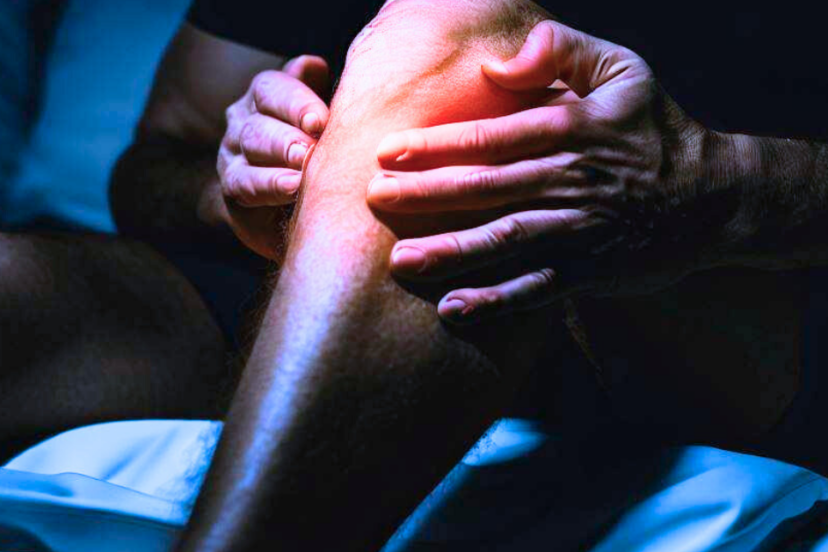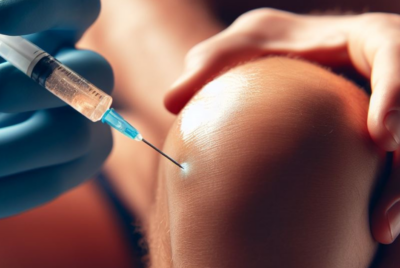Total Knee Replacement Pain at Night: Tips for a Restful Sleep
Living with total knee replacement can bring significant improvements to your daily life, but nighttime pain can disrupt your sleep and affect your overall well-being. In this article, I’ll provide helpful suggestions and reasons for alleviating total knee replacement pain at night. By implementing these strategies, you can improve your sleep quality, enhance your recovery, and experience greater comfort during the night.
Alleviating Total Knee Replacement Pain at Night: Tips and Strategies

Total knee replacement pain at night can be caused by various factors, including inflammation, swelling, and post-operative discomfort. Fortunately, there are several measures you can take to mitigate this pain and promote a restful sleep.
1. Sleep Positions and Pillow Support:
Experiment with different sleep positions to find the most comfortable one for your knee. Placing a pillow under your knee can help reduce pressure and provide support. Elevating your leg slightly with a pillow can also alleviate swelling and improve circulation.
2. Temperature and Humidity Control:
Maintaining a cool and comfortable sleep environment is essential. Use breathable bedding materials and consider using a fan or air conditioning to regulate the temperature. Avoid excessive humidity, as it can increase discomfort and make your joints feel stiff.
3. Medication and Pain Management Techniques:
Consult with your healthcare professional to ensure you have appropriate pain medication prescribed for nighttime use. Additionally, you can incorporate pain management techniques such as applying ice or heat therapy before bed, or using over-the-counter pain-relieving creams or patches.
4. Relaxation Techniques and Mindfulness:
Engaging in relaxation techniques before sleep can help calm your mind and reduce pain perception. Try deep breathing exercises, meditation, or listening to soothing music. Practicing mindfulness can also redirect your focus away from pain and promote a more restful state.
Lifestyle Adjustments for Nighttime Comfort

Beyond specific strategies for managing pain, making lifestyle adjustments can contribute to better sleep quality and overall comfort:
1. Exercise and Physical Therapy:
Regular exercise and physical therapy can strengthen the muscles around your knee, improve joint stability, and reduce pain. Engage in low-impact activities like swimming or gentle stretching exercises prescribed by your physical therapist. However, avoid vigorous exercise close to bedtime.
2. Weight Management and Healthy Diet:
Maintaining a healthy weight is crucial for reducing strain on your knee joint. Incorporate a well-balanced diet rich in nutrients and anti-inflammatory foods. Consult with a nutritionist or dietitian for personalized advice on foods that can promote healing and support a restful sleep.
3. Home Modifications for Better Sleep Environment:
Consider making modifications to your bedroom to enhance comfort. Use a supportive mattress and ensure proper pillow height. Install nightlights or motion-sensor lights to facilitate safe movement during the night.
4. Importance of Rest and Sleep Hygiene:
Establish a regular sleep schedule and create a relaxing bedtime routine. Avoid caffeine and stimulating activities before bed. Create a calm and soothing environment by dimming lights and engaging in relaxing activities such as reading or taking a warm bath.
Enhancing Recovery and Rehabilitation

Avoiding common pitfalls & mistakes after knee replacement to gain a successful recovery. Following the recommended post-operative instructions and engaging in rehabilitation activities are crucial for a successful recovery and minimizing nighttime pain:
1. Adherence to Post-Operative Instructions:
Follow your surgeon’s guidelines regarding medication, wound care, and weight-bearing restrictions. Adhering to these instructions can prevent complications and aid in your recovery process.
2. Physical Therapy Exercises and Stretches:
Regularly perform the prescribed physical therapy exercises and stretches. These activities can help restore mobility, strengthen muscles, and reduce pain. Incorporate them into your daily routine, ideally in the morning or early afternoon, to avoid any discomfort close to bedtime.
3. Utilizing Assistive Devices for Mobility:
Utilize assistive devices like crutches, walkers, or canes, as recommended by your healthcare professional. These aids can provide support and stability, reducing strain on your knee and minimizing nighttime pain.
Managing Emotional Well-being

Managing your emotional well-being is crucial during the recovery process, as it can positively impact your pain perception and sleep quality:
1. Addressing Anxiety and Depression:
Dealing with pain and recovery challenges can lead to feelings of anxiety and depression. Seek support from healthcare professionals, therapists, or support groups to manage these emotions effectively.
2. Seeking Support from Healthcare Professionals and Support Groups:
Engaging with professionals who specialize in total knee replacement can provide valuable guidance and support throughout your recovery journey. Additionally, connecting with others who have gone through similar experiences in support groups can offer empathy, encouragement, and practical advice.
3. Mind-Body Connection and Stress Reduction Techniques:
Recognize the mind-body connection and practice stress reduction techniques. Engage in activities that promote relaxation, such as gentle yoga, tai chi, or guided imagery. These practices can help alleviate pain, reduce anxiety, and improve sleep quality.
Conclusion
Experiencing total knee replacement pain at night can be challenging, but by implementing the strategies and tips provided in this article, you can improve your sleep quality, reduce discomfort, and enhance your overall well-being.
Remember, each person’s journey is unique, so it’s important to consult with your healthcare professional for personalized advice and guidance. With perseverance and a proactive approach to managing pain, you can achieve a more restful and comfortable sleep after total knee replacement.
FAQs
1. Can I use over-the-counter pain medication for nighttime pain relief?
Over-the-counter pain medication can provide temporary relief. However, it’s crucial to consult with your healthcare professional to ensure the medication is appropriate and safe for your specific situation.
2. How long does nighttime pain after total knee replacement typically last?
The duration of nighttime pain can vary from person to person. It often improves gradually as you progress through the recovery process. If the pain persists or worsens, consult with your healthcare professional for further evaluation.
3. Is it normal to experience swelling at night after total knee replacement?
Some swelling at night can be normal during the initial stages of recovery. However, if the swelling is severe or accompanied by increased pain or other concerning symptoms, consult with your healthcare professional for evaluation. They will be able to evaluate whether the pain is abnormal.
4. Can using heat therapy before bed help with nighttime pain?
Heat therapy can provide temporary relief by increasing blood circulation and relaxing the muscles. However, it’s important to use heat therapy as directed and avoid excessive heat that could potentially damage your skin.
5. When should I seek medical attention for nighttime pain after total knee replacement?
If you experience severe pain that is not relieved by medication, persistent swelling or redness, or any other concerning symptoms, it’s important to contact your healthcare professional promptly for evaluation and guidance.
*We may earn a commission from purchases made through our links, at no cost to you. This does not affect our product recommendations. Please see our disclosure to learn more.
![Urban Health Hive]](https://urbanhealthhive.com/wp-content/uploads/2023/05/cropped-cropped-Health_Logo.png)



